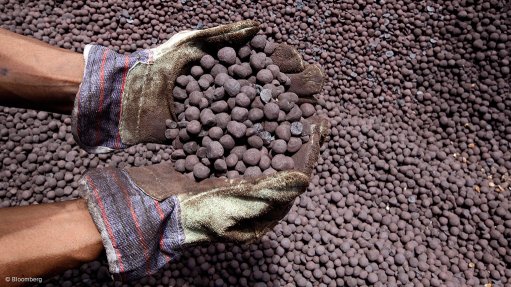Support for Africa high on Turkey’s agenda as new G20 chair
As Turkey takes over the reins as chair of the group of 20 (G20) economies, the country on Tuesday said it would hone in on African growth as it built on the momentum gained by its predecessor, Australia.
“Africa is a focal point for Turkey …”, he said, adding that Turkey planned to introduce new elements to bolster the efforts of the “Africa Agenda”.
Speaking at the South African Institute of International Affairs’ third annual African G20 conference: The G20 and Africa’s Practical Development Challenges, Turkey Ambassador Kaan Esener said Turkey was closely following the Africa 2063 Agenda.
The agenda, titled ‘The Africa We Want’ was expected to be approved by the heads of States at the January African Union Summit.
Further, the G20 was an “important” platform to advance the post-2015 development agenda, Esener said, as Turkey recommitted to enhancing the outcomes of the G20 2014 Brisbane summit, held in Australia, in November.
Economic adviser to President Jacob Zuma and South African G20 Sous-Sherpa Dr Bheki Mfeka believed that a “positive milestone” supporting the African agenda emerged from the Brisbane summit as the continent further shifted from being perceived as a “problem case” to becoming a key enabler for global growth and development.
During Australia’s rein, progress had been made on ambitions that would benefit Africa, which had its agenda “elevated” owing to South Africa’s G20 membership.
These included advancements on the transformation of global financial institutions, such as the International Monetary Fund and Financial Stability Board and the guarding against spillover effects of unconventional monetary policies, as well as assessments on the impact of base erosion and profit shifting on the least income countries (LICs) and the readiness of LICs to participate in the automatic exchange of information for tax purposes.
Further, traction had been gained on transforming energy governance to improve access to energy and the preparation for a multiyear programme on food security was under way.
Meanwhile, the grouping aimed to enhance trade and competition, which would be strong drivers of inclusive growth.
“Africa has a strong challenge to shift from exporting raw materials and the importing of manufactured goods,” said Mfeka, adding that the continent could gain a “stronger foothold” in global value chains and beef up trade by cutting bottlenecks and strengthening industrialisation.
“The G20 leaders recognised the need for policies that will take full advantage of global value chains and encourage greater participation at higher level of value creation by developing countries,” he explained.
Further, the G20 member countries committed to global anticorruption efforts through the G20 high-level principles on corruption and growth, besides others, and had increased efforts to fight against the spread of Ebola.
Advancing the human resource development agenda in developing countries, reducing the costs of remittances and intensifying efforts to improve financial inclusion were all focus points of the communiqué that had emerged from the high-level conference.
Further, Australia had established a global infrastructure initiative (GII), with an attached global infrastructure hub, to fast-track infrastructure investment by both the public and private sectors within and outside of the economic grouping.
The hub, which would be based in Sydney for the next four years, was established to monitor and coordinate the long-term G20 GII initiative.
“The hub, working with all African stakeholders, should be able to support coordination and facilitation of infrastructure investment in Africa. The New Partnership for Africa’s Development Agency will continue to play a critical role in coordinating implementation of [its] Programme for Infrastructure Development in Africa working with the hub and other global institutions,” Mfeka noted.
He concluded that, as global economic activity became “increasingly intertwined”, Africa was “deepening” its global economic ties, with the discussions and outcomes of the G20 now of “greater significance” to the region than ever before.
Comments
Press Office
Announcements
What's On
Subscribe to improve your user experience...
Option 1 (equivalent of R125 a month):
Receive a weekly copy of Creamer Media's Engineering News & Mining Weekly magazine
(print copy for those in South Africa and e-magazine for those outside of South Africa)
Receive daily email newsletters
Access to full search results
Access archive of magazine back copies
Access to Projects in Progress
Access to ONE Research Report of your choice in PDF format
Option 2 (equivalent of R375 a month):
All benefits from Option 1
PLUS
Access to Creamer Media's Research Channel Africa for ALL Research Reports, in PDF format, on various industrial and mining sectors
including Electricity; Water; Energy Transition; Hydrogen; Roads, Rail and Ports; Coal; Gold; Platinum; Battery Metals; etc.
Already a subscriber?
Forgotten your password?
Receive weekly copy of Creamer Media's Engineering News & Mining Weekly magazine (print copy for those in South Africa and e-magazine for those outside of South Africa)
➕
Recieve daily email newsletters
➕
Access to full search results
➕
Access archive of magazine back copies
➕
Access to Projects in Progress
➕
Access to ONE Research Report of your choice in PDF format
RESEARCH CHANNEL AFRICA
R4500 (equivalent of R375 a month)
SUBSCRIBEAll benefits from Option 1
➕
Access to Creamer Media's Research Channel Africa for ALL Research Reports on various industrial and mining sectors, in PDF format, including on:
Electricity
➕
Water
➕
Energy Transition
➕
Hydrogen
➕
Roads, Rail and Ports
➕
Coal
➕
Gold
➕
Platinum
➕
Battery Metals
➕
etc.
Receive all benefits from Option 1 or Option 2 delivered to numerous people at your company
➕
Multiple User names and Passwords for simultaneous log-ins
➕
Intranet integration access to all in your organisation




















